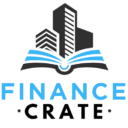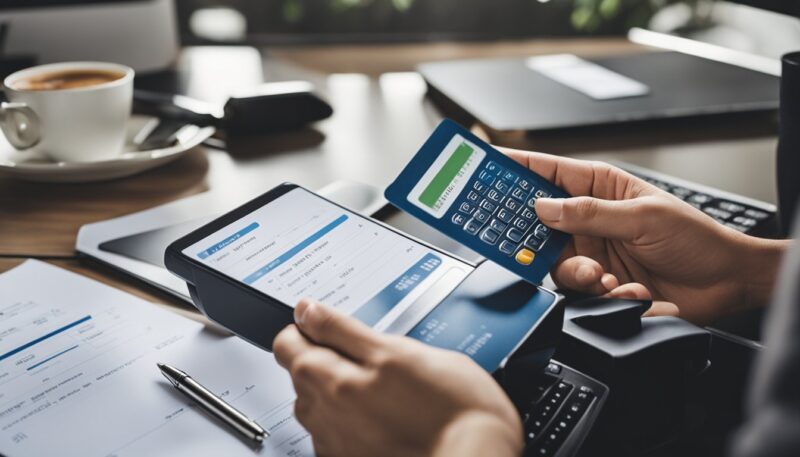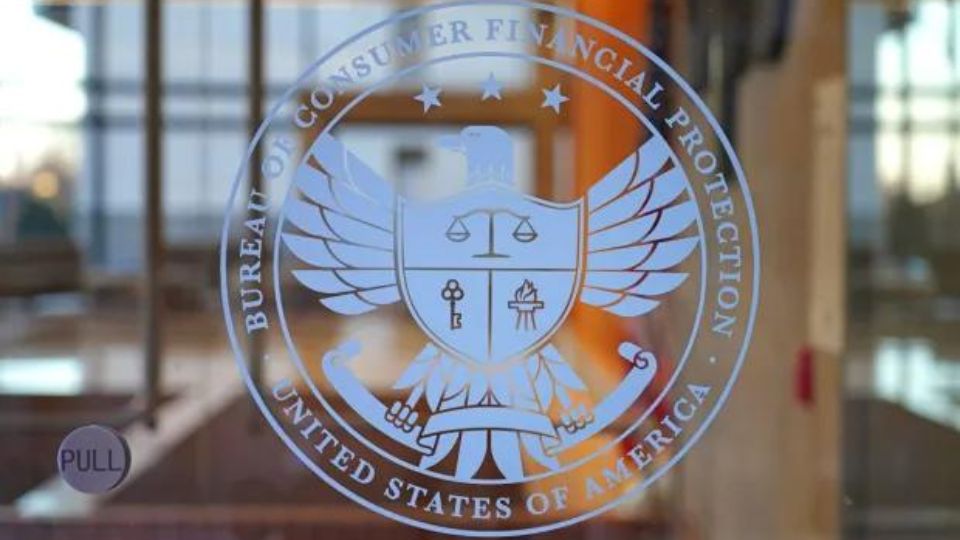Credit card debt can be a significant financial burden for many people. With high interest rates and minimum payments that barely make a dent in the balance, it can feel like a never-ending cycle of debt. However, there are strategies and management techniques that can help individuals regain control of their finances and become debt-free.
Understanding credit card debt is the first step in managing it effectively. It’s important to know how interest rates are calculated, how minimum payments are determined, and how missed payments can affect credit scores. Once individuals have a clear understanding of their debt, they can start implementing strategies to pay it off strategically.
Strategic debt repayment involves prioritizing debts based on interest rates and creating a payment plan that maximizes the amount paid toward the highest-interest debt. Budgeting is also an essential component of debt management, as it helps individuals allocate their money towards debt payments while still covering necessary expenses. With the right approach, it is possible to become debt-free and achieve financial freedom.
Key Takeaways
- Understanding credit card debt is crucial for effective debt management.
- Strategic debt repayment involves prioritizing high-interest debts.
- Budgeting is essential for allocating funds towards debt payments while still covering necessary expenses.
Understanding Credit Card Debt

Credit card debt is one of the most common forms of debt in the United States. It is important to understand the basics of credit card debt to effectively manage it.
Factors Affecting Credit Card Debt
The Impact of Interest Rates
Interest rates are a major factor in credit card debt. The interest rate is the percentage of the balance that is charged as interest. High interest rates can quickly accumulate debt, while low interest rates can make it easier to pay off debt.
Types of Credit Card Debt
There are two types of credit card debt: revolving and non-revolving. Revolving debt is debt that can be carried over from month to month, while non-revolving debt is debt that must be paid off in full each month.
Credit Utilization and Score Effects
Credit utilization is the percentage of available credit that is being used. High credit utilization can negatively impact credit scores. It is important to keep credit utilization low to maintain a good credit score.
Understanding credit card debt is crucial for effective management. Interest rates, types of debt, and credit utilization all play important roles in credit card debt. By understanding these factors, individuals can make informed decisions about their credit card usage and avoid accumulating excessive debt.
Strategic Debt Repayment

When it comes to credit card debt management, strategic debt repayment is a crucial aspect to consider. There are several methods that one can use to pay off their debts, and each has its advantages and disadvantages.
Debt Avalanche Method
The debt avalanche method is a debt repayment strategy that prioritizes paying off debts with the highest interest rates first. This method is effective because it reduces the amount of interest that accumulates over time, allowing the debtor to pay off their debts faster. To implement this method, one should make minimum payments on all debts and allocate any extra funds toward the debt with the highest interest rate. Once that debt is paid off, move on to the debt with the next highest interest rate and repeat the process until all debts are paid off.
Debt Snowball Method
The debt snowball method is another debt repayment strategy that prioritizes paying off debts with the smallest balances first. This method is effective because it provides a sense of accomplishment and motivation as debts are paid off one by one. To implement this method, one should make minimum payments on all debts and allocate any extra funds toward the debt with the smallest balance. Once that debt is paid off, move on to the debt with the next smallest balance and repeat the process until all debts are paid off.
Debt Consolidation Options
Debt consolidation is another option for managing credit card debt. It involves combining multiple debts into one loan with a lower interest rate. This can make it easier to manage debt and reduce the overall amount of interest paid over time. However, it’s important to do research and compare different consolidation options to find the best fit for one’s financial situation.
Strategic debt repayment is an important aspect of credit card debt management. By utilizing methods such as the debt avalanche or debt snowball, and considering options such as debt consolidation, individuals can take control of their debt and work towards financial freedom.
Related: Credit Cards and Travel: How to Maximize Benefits and Minimize Costs
Related; Instantly Access Crypto Liquidity via Credit Cards
Budgeting for Debt Management
Creating a Sustainable Budget
One of the most important steps in managing credit card debt is creating a sustainable budget. A budget is a financial plan that helps individuals track their income and expenses. It is important to create a budget that is realistic and sustainable, taking into account all sources of income and all necessary expenses.
To create a sustainable budget, individuals should start by calculating their monthly income. This includes any income from a job, investments, or other sources. Next, they should list all necessary expenses, such as rent or mortgage payments, utilities, groceries, and transportation costs. It is important to prioritize necessary expenses and make sure they are covered before allocating money to discretionary expenses.
Once necessary expenses are covered, individuals can allocate funds to discretionary expenses, such as entertainment or dining out. It is important to be realistic about discretionary expenses and not overspend in these categories.
Expense Tracking and Reduction
Tracking expenses is an important part of budgeting for debt management. By tracking expenses, individuals can identify areas where they can reduce spending and allocate more funds toward paying off credit card debt.
One effective way to track expenses is to use a budgeting app or spreadsheet. These tools can help individuals categorize expenses and track spending in real time. It is important to review spending regularly to identify areas where expenses can be reduced.
Reducing expenses can be challenging, but it is an important step in managing credit card debt. One way to reduce expenses is to negotiate bills, such as cable or internet bills. Another way is to cut back on discretionary expenses, such as dining out or entertainment.
Creating a sustainable budget and tracking expenses are important steps in managing credit card debt. By prioritizing necessary expenses and reducing discretionary expenses, individuals can allocate more funds toward paying off credit card debt and achieving financial stability.
Negotiating with Creditors
When it comes to managing credit card debt, negotiating with creditors can be an effective strategy to reduce the amount owed. Here are two common negotiation strategies:
Settlement Negotiation Strategies
A settlement negotiation involves reaching an agreement with the creditor to pay a reduced amount of the total debt owed. This can be a good option for those who are unable to pay off the full amount owed. Here are some tips for negotiating a settlement:
- Be prepared to offer a lump sum payment: Creditors are often willing to accept a lower amount if it’s paid in full, rather than in installments.
- Be honest about your financial situation: Explain to the creditor why you’re unable to pay the full amount and provide documentation to support your claim.
- Be persistent: Negotiations can take time, so be prepared to make multiple offers and counteroffers.
Debt Management Plans
A debt management plan (DMP) involves working with a credit counseling agency to create a repayment plan that is affordable for the debtor. The agency negotiates with creditors to reduce interest rates and waive fees. Here are some things to keep in mind when considering a DMP:
- Look for a reputable credit counseling agency: Make sure the agency is accredited and has a good reputation.
- Understand the fees: Most credit counseling agencies charge a fee for their services, so make sure you understand how much you’ll be paying.
- Stick to the plan: Once a DMP is in place, it’s important to make all payments on time and in full.
Negotiating with creditors can be an effective strategy for managing credit card debt. Whether through a settlement negotiation or a debt management plan, it’s important to be honest about your financial situation and to work with reputable professionals to find a solution that works for you.
Preventing Future Credit Card Debt
Building an Emergency Fund
One of the most effective ways to prevent future credit card debt is to build an emergency fund. An emergency fund is a sum of money set aside specifically for unexpected expenses, such as car repairs, medical bills, or job loss. By having an emergency fund, individuals can avoid relying on credit cards to cover these expenses, which can quickly lead to debt.
Financial experts recommend having at least three to six months’ worth of living expenses saved in an emergency fund. This may seem like a daunting task, but it can be achieved by setting aside a small amount of money each month. Consider automating savings by setting up direct deposit from your paycheck into a separate savings account.
Related: CFPB Report Reveals Small Bank Credit Card Rate Savings
Responsible Credit Card Usage
Another important strategy for preventing credit card debt is responsible credit card usage. This means using credit cards wisely and avoiding unnecessary purchases. It’s important to only charge what can be paid off in full each month to avoid interest charges and fees.
To help manage credit card usage, individuals can create a budget and track their spending. This can be done using a spreadsheet, budgeting app, or even pen and paper. By tracking spending, individuals can identify areas where they may be overspending and make necessary adjustments.
Additionally, individuals should regularly review their credit card statements to ensure there are no unauthorized charges or errors. If any issues are found, they should be reported to the credit card issuer immediately.
By building an emergency fund and using credit cards responsibly, individuals can prevent future credit card debt and maintain financial stability.
Frequently Asked Questions
What are effective strategies for reducing credit card debt?
One effective strategy for reducing credit card debt is to create a budget and stick to it. This involves tracking all expenses and income, and then allocating funds to pay off credit card debt each month. Another strategy is to negotiate with credit card companies to reduce interest rates or create a payment plan. It’s also important to avoid making new charges on credit cards until the debt is paid off.
How can one consolidate credit card debt to improve financial management?
Consolidating credit card debt involves combining multiple credit card balances into one loan with a lower interest rate. This can make it easier to manage payments and reduce overall interest charges. Options for consolidation include balance transfer credit cards, personal loans, and home equity loans.
What are some methods to pay off significant credit card debt, such as $30,000?
One method to pay off significant credit card debt is to create a debt repayment plan. This involves prioritizing debts by interest rate and paying off the highest-interest debt first. It’s also important to make larger payments on credit card debt whenever possible. Another option is to consider debt consolidation, as mentioned above.
How can credit card debt be eliminated without adversely affecting credit score?
Credit card debt can be eliminated without adversely affecting credit score by making payments on time and in full each month. It’s also important to avoid closing credit card accounts, as this can negatively impact credit utilization and length of credit history. Another option is to negotiate with credit card companies to create a payment plan or reduce interest rates.
What are the best practices for using a credit card to build a positive credit history?
Best practices for using a credit card to build a positive credit history include making payments on time and in full each month, keeping credit utilization low, and avoiding opening too many credit accounts at once. It’s also important to monitor credit reports regularly for accuracy and to dispute any errors.
How can individuals calculate their credit card payments to optimize debt relief?
Individuals can calculate their credit card payments to optimize debt relief by using a debt repayment calculator. This tool can help determine how much to pay each month to pay off debt within a certain timeframe. It’s also important to consider prioritizing debts by interest rate and making larger payments whenever possible.
Further Assistance with Credit Card Debt
If you’re looking for organizations that assist with credit card debt, here are three reputable options you can explore:
- InCharge Debt Solutions: This is a nonprofit organization offering debt consolidation and credit counseling solutions. They provide free initial counseling sessions and low-cost enrollment in debt management plans if you choose to enroll. Their services focus on lowering interest rates and consolidating payments into one manageable monthly payment. For more information, you can visit their website at InCharge Debt Solutions.
- Need Help Paying Bills: While not a direct service provider, this website offers a comprehensive directory of various assistance programs, including those related to credit card debt. They provide information on various banks’ credit card assistance programs, hardship plans, and negotiation tips for lowering payments. Their resource page can be a good starting point to understand the types of assistance available and how to access them. More details can be found at Need Help Paying Bills – Credit Card Assistance Programs.
- National Foundation for Credit Counseling (NFCC): The NFCC is a well-known nonprofit organization that offers free credit counseling, including budgeting help and educational resources. They provide various debt relief options and can guide you through debt management, debt consolidation, and bankruptcy processes. NFCC member agencies are certified and offer low-cost or free services. You can get in touch with them via their website at NFCC.
Each of these organizations provides different types of assistance and resources, so it might be beneficial to explore each to find the best fit for your specific situation. Remember, it’s important to thoroughly research and understand any debt relief program before committing to it.




